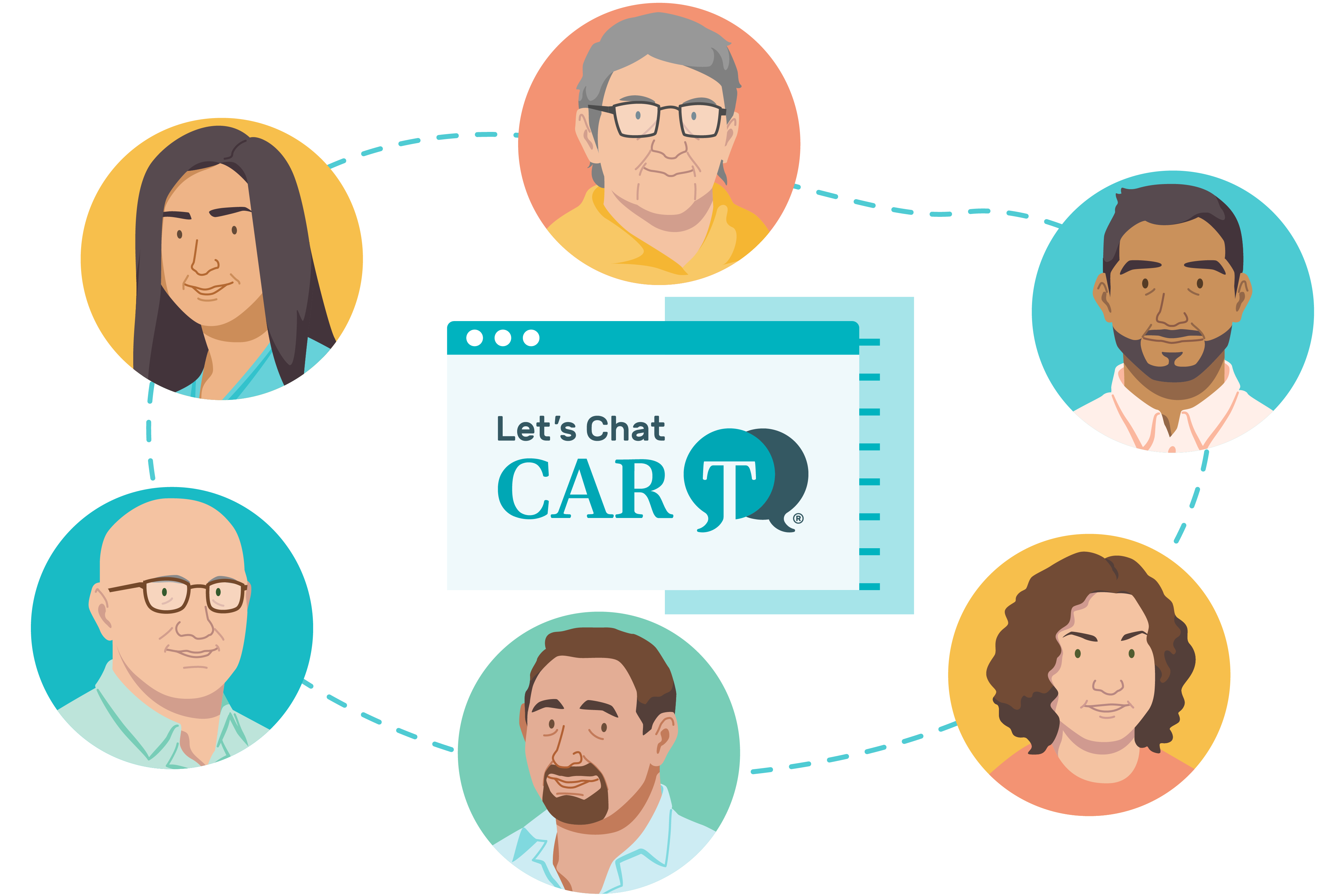




- after receiving CAR T, many patients saw some, or all, symptoms of cancer disappear. There is a chance that cancer symptoms may come back
- your CAR T treatment team will be there every step of the way
- people in different circumstances have been able to receive CAR T
- you can visit the support page to learn about help that may be available if needed
- the entire treatment process generally only happens once
You can let your healthcare team know if you'd like a CAR T consultation, even if you still need time to think through the details. Ask your healthcare team if there's someone who can answer your questions and walk you through what that process might look like. Starting the process sooner can be helpful since each step of CAR T takes time to organize and prepare for.

While CAR T can help your immune system fight cancer, it can also cause your immune system to become overactive or affect the rest of your body in unwanted ways. Side effects can happen with CAR T. Side effects are well studied, and processes for managing them have evolved over time. Your CAR T treatment team is specifically trained to monitor and manage any side effects.
Cytokine release syndrome and neurotoxicity are two side effects that many patients have experienced and can become life-threatening. These are not all the possible side effects of CAR T. There are other CAR T side effects. Please see BMT InfoNet to learn more about side effects.
Each person’s experience and potential side effects will be different. If you and your caregiver notice any symptoms, make sure to tell your CAR T treatment team so they can manage them.
Some examples of the symptoms you may feel are below.

Your CAR T treatment team will monitor and manage any side effects you may experience. Side effects generally occur within the first few weeks and are treated at a CAR T medical center. You'll stay near a CAR T medical center for at least four weeks after your CAR T infusion to be close to your team. You may be required to stay at the center where you received your infusion for part of this time.
You and your caregiver will be an important part of watching for side effects. Your CAR T treatment team will tell you what to watch out for. It's important to share how you are feeling, and for your caregiver to watch out for any side effects that you may not recognize yourself.
When your CAR T treatment team feels you are ready, you will no longer be required to be near a CAR T medical center. Side effects can still occur and the CAR T treatment team will provide instructions on what to do if they come up.

At the CAR T medical center, your CAR T treatment team may ask you to do some tasks to see if there have been any changes in your mental and physical abilities. For example, they may ask you to:
- write something, like a standard sentence
- say something, like naming the date and location you are in, pointing to and naming objects in the room, counting backwards from 100 by increments of 10
- follow a simple instruction, like holding up two fingers

Your CAR T treatment team will also watch for any changes in how your body and organs are working. For example, they will check:
- your temperature to see if you have a fever or an elevated temperature (over 100.4°F or 38ºC)
- your blood pressure to see if you have low blood pressure (hypotension)
- your oxygen levels to see if you have low oxygen levels (hypoxia)
- your blood test results to see if there is any change in how your internal organs are working
Your CAR T treatment team may also run other tests that aren't on this list.

- BMT InfoNet: Side Effects of CAR T-cell Therapy
- National Comprehensive Cancer Network (NCCN): Patient Resources—click on 'Guidelines for Patients' then 'Immunotherapy Side Effects: CAR T-Cell Therapy' near the bottom of the page

![[Tap to play] Thumbnail for a video titled: Preparing for CAR T: Terry and Cheryl’s Story.](/-/media/project/letschatcart/letschatcart_com/herobanner/preparing-for-car-t-play-video-button-mobile.svg?iar=0&hash=65094B264DFB647C3131C9DF30655C34)


